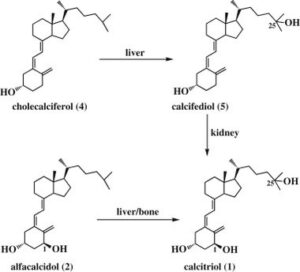Decoding trending diets
 The fascination with popular diets persists.
The fascination with popular diets persists.
In this post, we’re peeling back the layers of myth and realities revealing the intricate details behind their claimed successes and potential pitfalls.
As a nutritionist, my mission is to provide you with a nuanced understanding, empowering you to make informed decisions about your health and well-being.
To be honest with you, I am not big on restrictive eating plans. If your only goal is to lose weight then you may get some ideas below, if your goal is to get healthy then we are a good match.
My motto is realistic goals and no judgment, I am not the slimmest person but I am healthy for my age and I enjoy life, food and a good glass of wine.
So let’s get down to decoding some of these trending eating plans.
1. Keto
Myth:
Accelerated weight loss, stabilized blood sugar, heightened energy levels.
Reality:
While some experience weight loss, keto’s restrictiveness can lead to potential nutrient deficiencies and initial adjustment symptoms. The long-term sustainability remains a question.
Leah’s Insights
“As a Naturopath and Nutritionist, I emphasize the importance of balance and sustainability in any dietary approach. While the Keto diet can yield positive outcomes, it’s crucial to tailor it to individual needs, ensuring a well-rounded intake of nutrients. My Naturopathic perspective urges mindfulness of the inherent restrictions. “
2. Plant-Based
Myth:
Heart-healthy, weight-friendly, boosted fibre intake, Cancer preventive.
Reality:
A plant-based eating style offers numerous benefits, but meticulous planning is crucial to ensure adequate intake of essential nutrients, especially protein and iron. It’s not a one-size-fits-all solution
Leahs Perspective
” 94% of Australians do not eat enough vegetables, so more plant-based food is a positive. What concerns me is that some of the alternatives ie “plant-based meat etc” can be full of rubbish, it is important to read the ingredient list properly. I also see a lot of really sick patients who need to eat animal protein. If you can’t put effort into doing this diet correctly then it is not a good long-term eating plan for good health.”
3. Mediterranean
Myth: Nourishing fats, antioxidant-rich, holistic well-being.
Reality: The Mediterranean diet is probably the most beneficial, but success depends on maintaining proper portion control. It may also pose challenges for individuals with specific dietary needs.
Leah’s insight
The Mediterranean diet, characterized by a rich tapestry of whole foods, leans on heart-healthy fats, abundant fruits and vegetables, lean proteins, and moderate wine consumption. It’s a lifestyle as much as an eating style. emphasizing not just what’s on the plate but also social connections, physical activity, and savouring the simple pleasures of life. As a red wine and food enthusiast, this plan holds a special place as a favourite, offering a realistic and sustainable approach without judgment. It embraces a balance that makes wellness a joyful journey rather than a rigid prescription.
4. Intermittent Fasting
Myth:
Weight loss benefits, enhanced insulin sensitivity, simplified approach.
Reality:
My least favourite for many reasons. Intermittent fasting can aid weight loss, but there’s a risk of overeating during non-fasting periods. This in turn can spike blood sugar. It may not be suitable for everyone, and individual responses vary.
5. Paleo
Myth:
Emphasis on whole foods, potential weight loss and blood sugar improvements.
Reality:
While emphasizing whole foods, the Paleo diet comes with limited food options and the potential for insufficient fibre. Long-term sustainability may be challenging for some.*
6. Whole30
Myth:
Processed food elimination and identifies food sensitivities and reset habits.
Reality:
Whole30 can be a useful reset, but its stringency makes it challenging for long-term adherence. It may not suit everyone, and understanding individual tolerances is essential.
7. Detox Cleanse
Myth:
Total body purification, improved energy, weight loss.
Reality: Detoxing may provide a temporary sense of cleansing, but its effectiveness is debated. Some plans lack essential nutrients and may lead to fatigue and nutritional imbalances.
8. Ozempic
Every day I get asked about and hear about the benefits of this for diabetics and rapid weight loss. A once-a-week treatment.
Myth:
Rapid weight loss no consequences.
Reality:
This medication can cause malnutrition and long-term health concerns.
Leahs Perspective
I see the attraction if you need to fit into an outfit within a few weeks. However, the long-term dangers of this medication are high. Even for a diabetic, I would recommend eating style changes, not this medication.
9. Seafood diet (See Food)
In the whimsical realm of diet humour, the “seafood diet” is a classic bad dad joke in Australia.
The punchline whimsically declares, “I’m on a seafood diet. I see food, and I eat it!”
Myth:
Adopting a seafood diet involves munching on whatever catches your eye. With no consequences.
Reality:
Healthy eating requires a thoughtful approach, emphasizing a well-balanced diet with a variety of nutrient-rich foods. So, while the seafood diet may elicit a chuckle, remember that a more intentional and varied approach is key for genuine well-being!
While all these diets may carry promises of health benefits, it’s paramount to recognize the intricacies. Before diving into any new diet, challenge the myths and seek guidance from a seasoned professional like Naturopath and Nutritionist Leah.
Leah’s expertise lies in demystifying diet trends and tailoring nutrition plans that address your unique needs, preferences, and health objectives.
Take a proactive step toward a healthier version of yourself.
Naturopath, Nutritionist
Clinic North Gosford NSW Central Coast
Telehealth Australia Wide

